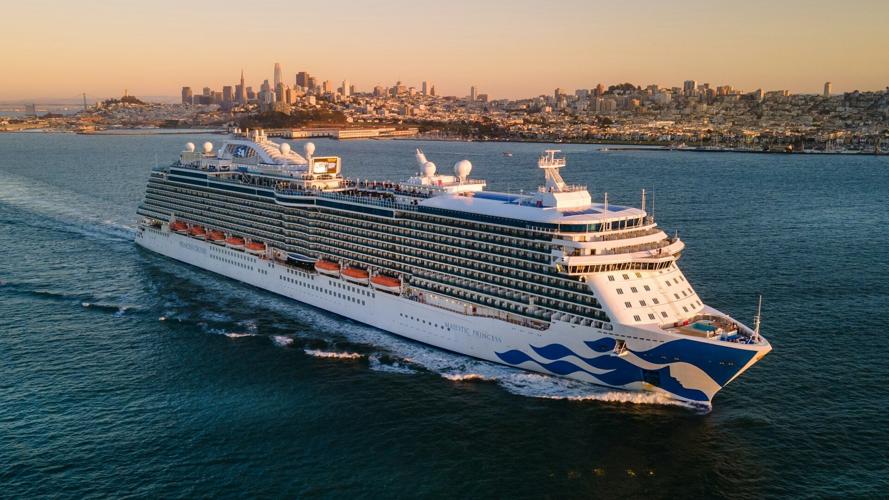
(Photo by Pavel Danilyuk via Pexels)
Nearly seven in 10 Americans suffer from “travel dysmorphia” — the feeling that they haven’t seen enough of the world compared to others.
A survey of 2,000 U.S. adults split evenly by generation revealed that less than half (48%) are satisfied with how much they’ve traveled in their lifetime.
Social media appears to be a key driver of that sentiment. Over a third (35%) cite friends’ and family members’ travel posts as triggers, and another 32% say travel conversations with peers heighten feelings of inadequacy.
Among Gen Z, this effect is more pronounced: 47% say influencer and YouTube content contributes to their travel dysmorphia, and more than half (55%) report that social media makes them feel like they’re “behind” in life overall.

More than a quarter of both Gen Z (26%) and millennials (27%) admit they’re embarrassed about their travel experience, or perceived lack thereof.
The study, conducted by Talker Research on behalf of Scenic Group, revealed that only 10% of Americans feel they have achieved all of their travel goals to date.
Common obstacles include cost (63%), work commitments (19%), family responsibilities (19%), and logistical fatigue (18%).
Additionally, many younger respondents cited a “someday” mindset, assuming they still have plenty of time to reach their travel goals (22% for Gen Z and 16% for millennials), as a reason for delaying travel.
Despite the barriers, Americans remain eager to explore. Nearly one-third (32%) of Americans have never left the country. Only 12% don’t intend to do so and the average person hopes to see 22 different countries.
The top global destinations Americans aspire to see include Japan (24%), Paris (24%), Greece (19%), Australia (17%), Puerto Rico (16%), Germany (14%), and even more remote locales like Antarctica (5%) and Vietnam (5%).
“These findings speak to the deeper emotional realities surrounding modern travel. Travel has become more than a milestone – it’s now a marker of fulfillment and success,” said Ken Muskat, President of Scenic Group USA and LATAM. “People aren’t just falling behind on destinations; they’re falling behind on the experiences they thought would define this chapter of life, and they’re not sure how to catch up.”
But mindsets are shifting. Results found that Americans are moving away from aspirational bucket lists, and focusing more on international, achievable travel in the shorter term.
A quarter of baby boomers are focusing on smaller, more attainable trips and Gen X are choosing more meaningful destinations (14%).
Gen Z are prioritizing travel with friends and family (21%) and are saying “yes” to every opportunity (17%), while millennials are working to make the most out of every trip (21%).
In the next five years, nearly half of all Americans polled (44%) hope to visit somewhere entirely new.
Beach vacations and road trips are the most popular (37% each), with 25% interested in booking all-inclusive escapes.
Cruising is also seeing broad appeal: 28% of respondents want to take an ocean cruise, 18% are drawn to river cruises, and 6% hope to embark on polar expeditions.
Gen Z respondents expressed interest in seasonal trips like holiday markets (20%), while Gen X is looking toward historical and cultural tours (22%).
Wildlife experiences (22%), wellness retreats (13%), and culinary adventures (12%) are also on the rise across all age groups.
With so many places to go and things to do, the best may be yet to come, as those under the age of 30 believe they will only be traveling more as they get older.
“This research shows that Americans are rethinking what meaningful travel looks like – and when ‘someday’ should start,” said Muskat. “A lot of us grew up with the idea of a ‘bucket list,’ but that often keeps experiences stuck in the future. A ‘Living List’ is about shifting that mindset: embracing travel as something you build into your life now, not wait for later.”

tommao wang
Survey methodology:
Talker Research surveyed 2,000 general population Americans split evenly by generation (500 Gen Z, 500 millennials, 500 Gen X and 500 baby boomers); the survey was commissioned by Scenic Group and administered and conducted online by Talker Research between June 6 and June 13, 2025.
We are sourcing from a non-probability frame and the two main sources we use are:
- Traditional online access panels — where respondents opt-in to take part in online market research for an incentive
- Programmatic — where respondents are online and are given the option to take part in a survey to receive a virtual incentive usually related to the online activity they are engaging in
Those who did not fit the specified sample were terminated from the survey. As the survey is fielded, dynamic online sampling is used, adjusting targeting to achieve the quotas specified as part of the sampling plan.
Regardless of which sources a respondent came from, they were directed to an Online Survey, where the survey was conducted in English; a link to the questionnaire can be shared upon request. Respondents were awarded points for completing the survey. These points have a small cash-equivalent monetary value.
Cells are only reported on for analysis if they have a minimum of 80 respondents, and statistical significance is calculated at the 95% level. Data is not weighted, but quotas and other parameters are put in place to reach the desired sample.
Interviews are excluded from the final analysis if they failed quality-checking measures. This includes:
- Speeders: Respondents who complete the survey in a time that is quicker than one-third of the median length of interview are disqualified as speeders
- Open ends: All verbatim responses (full open-ended questions as well as other please specify options) are checked for inappropriate or irrelevant text
- Bots: Captcha is enabled on surveys, which allows the research team to identify and disqualify bots
- Duplicates: Survey software has “deduping” based on digital fingerprinting, which ensures nobody is allowed to take the survey more than once
It is worth noting that this survey was only available to individuals with internet access, and the results may not be generalizable to those without internet access.






















(0) comments
Welcome to the discussion.
Log In
Keep it Clean. Please avoid obscene, vulgar, lewd, racist or sexually-oriented language.
PLEASE TURN OFF YOUR CAPS LOCK.
Don't Threaten. Threats of harming another person will not be tolerated.
Be Truthful. Don't knowingly lie about anyone or anything.
Be Nice. No racism, sexism or any sort of -ism that is degrading to another person.
Be Proactive. Use the 'Report' link on each comment to let us know of abusive posts.
Share with Us. We'd love to hear eyewitness accounts, the history behind an article.